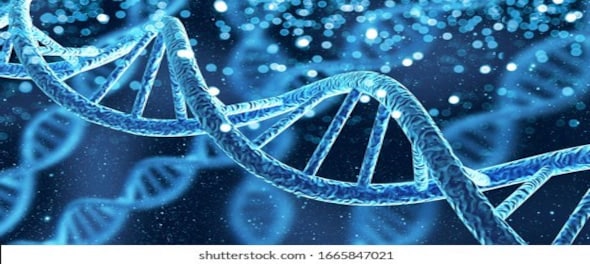
Scientists in India have recently announced completion of whole genome sequencing of 10,000 individuals that might throw light on the genetic variations that are related to specific diseases, lifestyle disorders, prevalent in the country. This as a reference data will help in developing more effective treatments through lifestyle modifications and personalised drugs.
The whole genome sequencing, under Genome India project, was initiated to collect genetic data set of at least 10000 people from across the country, to know how different are the genetic make up of Indians from the rest of the world, and what are the genetic mutations and related health issues, including some rare diseases, specific to different regions, communities, races etc., within the country.
These data will ultimately help understanding the genetic history of the population here and those specific information, which are relevant for scientific and clinical purposes, can be used to address diseases, birth defects and other healthcare requirements.
While the developed world has had this reference data specific to those populations earlier, many of the existing modern medicines and treatments were developed according to those references.
Here’s a peek into what is genome sequencing and what is the significance of creating such a kind of data base.
Genomes
A genome is the complete set of genetic information present in a cell. DNA is the genetic material that contains all the instructions that are required for that organism’s function. The Human Genome—the complete map of all the 23 large DNA sequences (chromosomes) that encodes our species – comprises a total of around 3 billion base pairs contained within the nuclei of each of our cells. We inherit our genomes from our parents. Half of the DNA is from mother and the other half from father. The DNA is responsible for almost everything that we do — from our evolution to the way we look, to the way we react to drugs and environment.
About 1 in 1000 positions differ between any two individuals on an average, resulting in genetic diversity. These genetic variations among individuals affect our disease risks and also determine a person’s response to drugs. Understanding these genetic nuances will help in underscoring an individual’s predisposition to certain diseases and designing effective treatments.
Genome sequencing
Genome sequencing is the technique, which enables us to read the order in which nucleotides (basic building block of DNA) are arranged in the DNA. This would also help in identifying genetic differences between individuals. Some of these differences (mutations) are linked with disorders but can also be linked with other factors. Genetic sequencing plays a critical role in understanding the molecular basis of complex disorders such as diabetes, heart disease, cancer and even some mental disorders.
The need for database
A “reference genome” tailored to the Indian population will help in the understanding of the nature of diseases. It will open the doors to specific interventions that are essential for various ethnic groups. This is in turn will pave the way for more targeted and effective health care solutions. Every single population has a unique set of mutation due to practice of endogamy (marriage within the population). This would also help in identifying population-specific diseases causing mutations. The database of 10,000 genomes across the population of India will help capture the unique DNA variations in the Indian population.
Genome India Project And Its Significance
The project that started in 2020 has been funded by the Department of Biotechnology, Ministry of Science and Technology, Government of India. The working consortium is represented by 44 scientists from 20 institutes across the country. Of this 13 collected the samples, four of which also collected the blood samples and sequenced the genome, and 7 developed new methods for analysing the sequence data. A total of 20,000 samples of 99 population groups across the country were collected, of which 10,000 samples have been sequenced.
Besides the scientific importance, many of the variations will have clinical significance leading to targeted clinical interventions for specific sub groups. The genetic roadmap holds the promise of precision medicine that has the potential for transforming the landscape of clinical care. The sequencing will help understand the population history and how people have adapted to a specific environment.
Creating a database of Indian genomes means that the scientists can learn about the genetic variants that are unique to India’s population groups and make use that for customise drugs and therapies.
This will also help to understand the mutations that cause genetic diseases besides understanding the frequency of mutations in different populations. Besides giving an overview on how mutations makes us susceptible or resistant to infectious diseases, this will enable a deeper understanding on how certain mutations gives therapeutic response and some gives adverse response. It will also allow one do gene therapy for treating diseases, early detection of disease and in turn premarital and prenatal counselling to reduce the disease burden.
What Next
The sequences have been deposited in the Indian Biological Data Centre and will be made available for academic and research purposes, after appropriate guidelines for data access are in place.
(Edited by : C H Unnikrishnan)
First Published: Mar 7, 2024 4:00 PM IST
Check out our in-depth Market Coverage, Business News & get real-time Stock Market Updates on CNBC-TV18. Also, Watch our channels CNBC-TV18, CNBC Awaaz and CNBC Bajar Live on-the-go!


'Rahul Gandhi deserted Amethi due to fear of Smriti Irani': How BJP plans to puncture Congress' UP plan
May 3, 2024 1:12 PM
'Don't be scared, don't run away', PM Modi tells Rahul for not contesting from Amethi
May 3, 2024 1:06 PM

